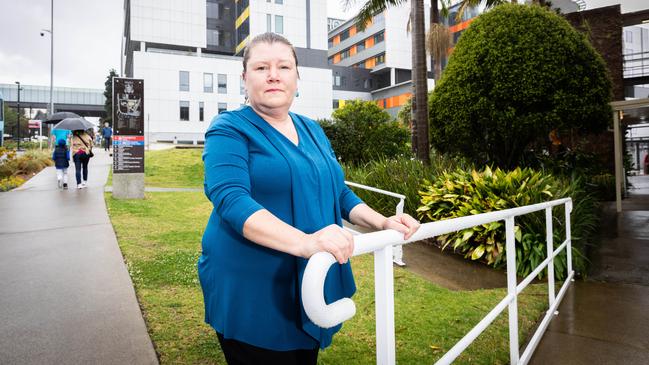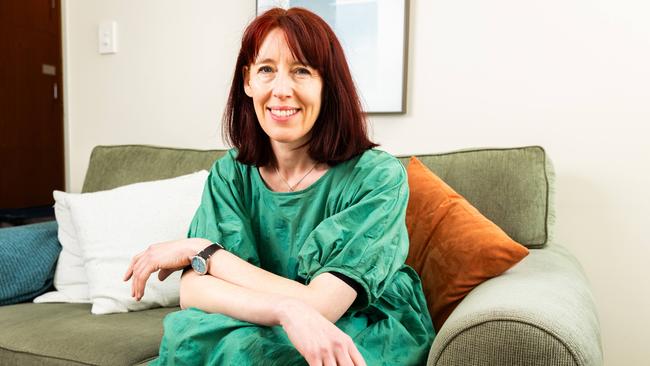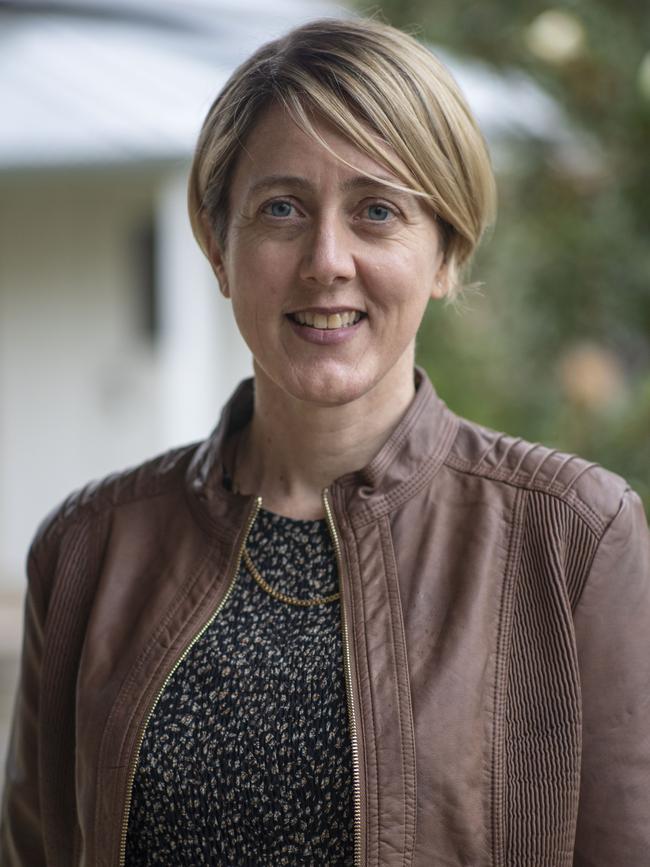Australia’s mental health crisis even worse than we thought
Stronger demand for support has led to increased wait times across the nation. Some psychologists have even closed their books to new clients. Meet the locals still waiting.

Wentworth Courier
Don't miss out on the headlines from Wentworth Courier. Followed categories will be added to My News.
It was during a Covid lockdown that Sharon Grocott noticed her daughter’s mental health declining. At first, Amber thought she could hear the neighbours’ intimate conversations. Then she became convinced her Facebook was being hacked, and that someone was trying to steal her identity.
Grocott has worked in the mental health sector for most of her life, but even she found navigating the system challenging as she tried to get help for the 25-year-old, who has since been diagnosed with psychosis and schizophrenia.
“I rang around 12 psychologists and they all had full books, so they couldn’t take on any new clients,” she says. “Finding a specialist is even harder. My daughter has a mild intellectual disability and we had to wait 14 months for a psychologist who has an understanding of disability.”
Grocott, from Castle Cove, has also waited in the emergency department at Royal North Shore Hospital for over 10 hours with Amber on more than one occasion.

“Unless someone is taking their own life it’s almost impossible to get support,” she says. “It’s not a physical illness, so people can’t see it.”
As chief executive of WayAhead – Mental Health Association NSW, Grocott knows Amber is far from alone in having a mental health condition triggered by the pandemic, contributing to the crisis the industry is facing. And she fears things are going to get worse.
“We’re not seeing the full effect of Covid yet,” she says. “It’s caused a lot of distress and trauma. There are high levels of anxiety out there. I think the cost of living and housing crisis is impacting people’s mental health. A lot of people can’t even afford a GP, let alone a psychiatrist, so their mental health is spiralling and they’re ending up in hospital. There should be more focus on early intervention.”
A recent report by the McKell Institute commissioned by the Australian Association of Psychologists Inc (AAPi) finds demand for sessions has grown by 70 per cent year-on-year on average since the pandemic began.
While new data by the Australian Bureau of Statistics shows one in five Australians experienced a mental health disorder in the previous twelve months.
The Under Pressure: Australia’s Mental Health Emergency report reveals three out of four clinicians now have waiting lists, with more than half of clients waiting four to six weeks and more than a quarter waiting more than two months. Almost 40 per cent of psychologists closed their books to new clients at the end of 2022.
Separate research by Beyond Blue shows 39 per cent of people with a mental health condition delay seeking support due to costs and 30 per cent due to waitlists, while 24 per cent think their problem isn’t serious enough.
“It really just boils down to the fact that we have a mental health crisis,” McKell Institute senior policy analyst Marni Lefebvre says.
“Covid exacerbated and triggered mental illness, but the knock-on effect of the cost-of-living crisis has only increased the problems we started to see during the pandemic. There’s a lot of demand for mental health professionals and there’s a supply problem. We’re trying to figure out how to fix that bottleneck issue.”

Lefebvre says unless barriers such as cost, availability and access are addressed, the gap between supply and demand is only going to widen.
“Waiting doesn’t help people with mental health issues, it exacerbates the problem,” she says.
Lefebvre believes the long-term solution is a stepped mental health program.
“That means that people with more complex needs are given more attention and more sessions,” she says. “For the time being, allowing provisional psychologists to offer the Medicare rebate would alleviate some of the supply issues.”
Psychologist Claire Trevitt, from Holistic Psychology Services in Bondi Junction, agrees the main issues are access to services and affordability.
The federal government’s Better Access initiative, which was introduced in 2006, allows people who are diagnosed with a mental health disorder by their GP and given a mental health treatment plan up to 10 mental health services subsidised by Medicare each year. But Trevitt says many people can’t afford to pay the gap fee.
“The rebate has gone up by about a dollar a year, but prices are going up for everything, so it’s very difficult for people to afford to pay that gap,” she says. “The professional association recommends psychologists charge $300 an hour and the rebate is around $90. Very few people would be charging that much though.
“There’s a percentage of people who can afford to come on an ongoing basis, but many people can’t. The postcode people live in doesn’t necessarily mean that they have infinite disposable income, and they have a lot of expenses.
“It’s a big gap. There are very few services that offer ongoing or low-cost treatment.
“I previously worked for Victims Services, which offers long-term support for people who have experienced trauma, but their rates haven’t increased for 12 years, so as a practitioner I don’t do as much work for them as I would like to.

“We want to be able to provide services to people who really need it and people who don’t have the financial means, but in private practice it’s very difficult because the Medicare rebate doesn’t allow that.”
Trevitt, who is a member of AAPi, would like to see the Medicare rebate increased so people can afford the treatment they need.
Fellow AAPi member Dr Trisha Nowland, who practices out of Strelitzia Consulting Rooms in Gordon, says the mental health system was already under-resourced prior to Covid.
“For many people, the kind of experiences they had during Covid continue to play a role in their ongoing lives, particularly for those who already had mental health vulnerabilities,” she says.
“Lockdowns may have intensified experiences of isolation and anxiety. The imposition of authority on to everyday life may have triggered childhood experiences in terms of powerlessness and isolation at the hands of authority.
“In my work with clients, Covid nearly always presents as a time of change, and that might have been a precursor to ongoing issues in relationships. If there were already issues there, it showed them up, and the consequences are still being played out today.”
Nowland also works as a researcher, which allows her to offer sessions at a reduced cost to those who need them most outside of office hours.
“It’s not uncommon for mental health professionals to end up having to take on some kind of part-time role generating an income so they can work as a mental health professional,” she says.
“The Medicare funding is not adequate or covering our costs.
“I also work in a telehealth role where they could originally bulk bill, but they have had to shift to a co-payment model because the business is not viable just on Medicare fees.
“The costs are going up but clients’ capacity to pay is going down, leaving more people vulnerable.”
Nowland finds she is increasingly recommending financial counselling for clients in the wake of rising interest rates and inflation.
“Things like mortgage costs are presenting more frequently as a stressor for adults,” she says.
Eastern suburbs-based psychologist Dave Low, who founded online mental health service MyResolve, says he is often contacted by people who are unable to make a booking to see a psychologist in person.
“We have a network of psychologists all over Australia, but I think people prefer to talk to someone who’s close to where they live if they can,” he says.
The organisation also offers free workshops and tries to educate people who can’t afford help about free services.
“Lifeline is beneficial to an extent, but people are looking for something more,” he says. “A solution would be to increase Medicare so that it’s less cost for patients, but psychiatrists are still getting compensated for their work and commitment to the patient.”
October 10 is World Mental Health Day
Lifeline 13 11 14
Beyond Blue 1300 224 636, beyondblue.org.au


